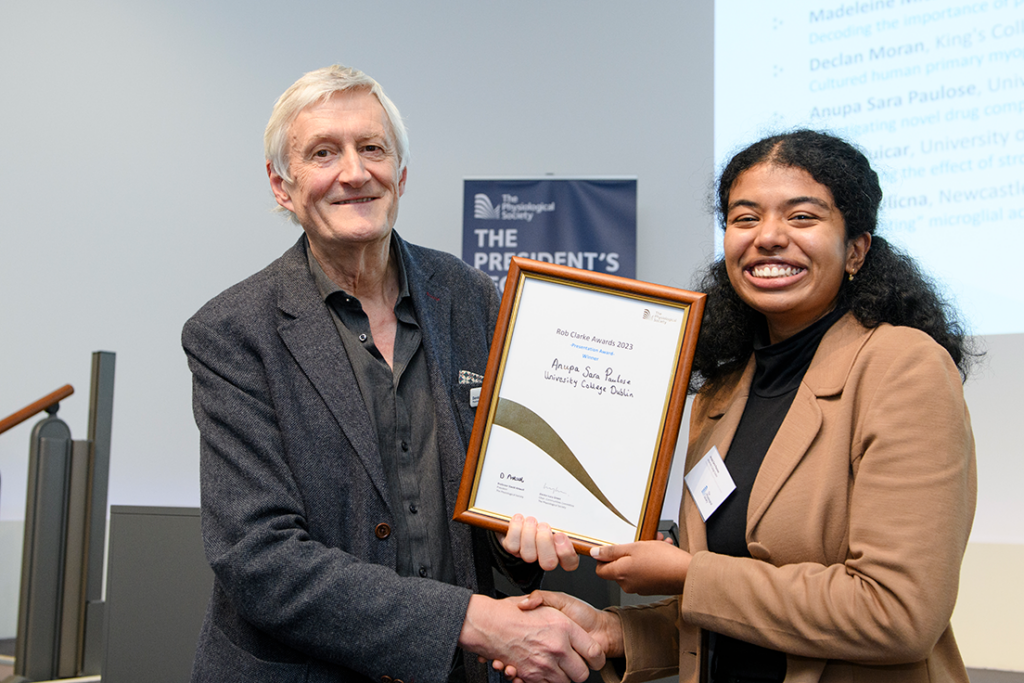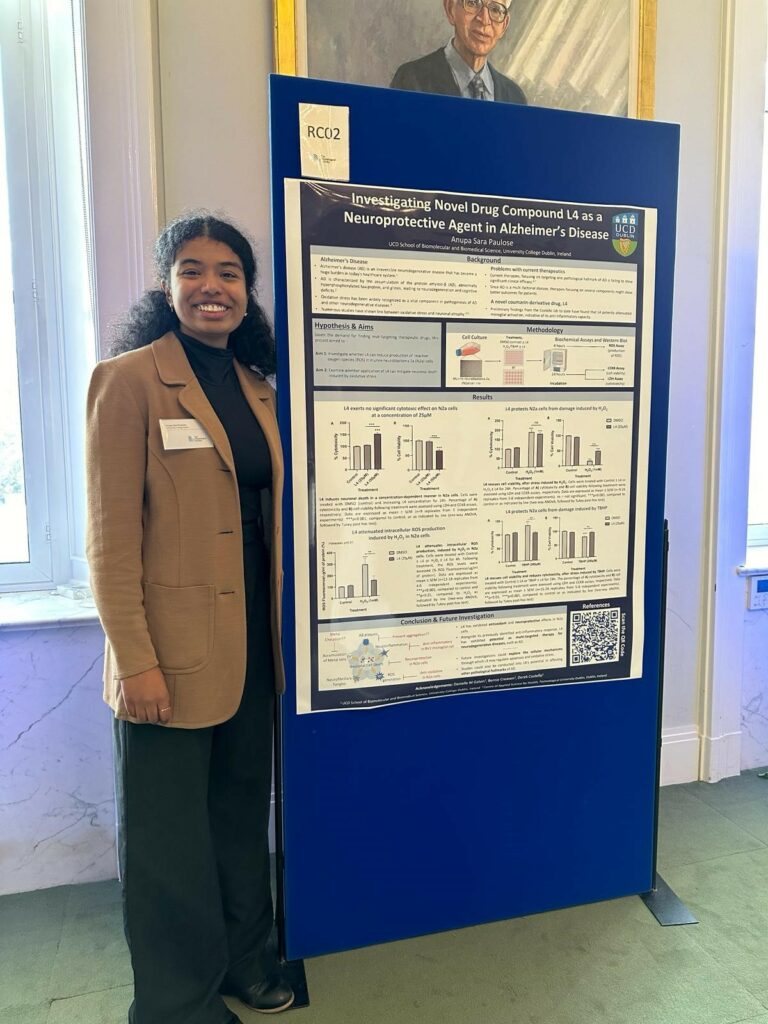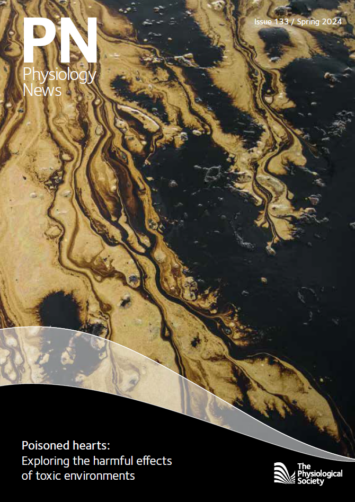
Physiology News Magazine
Congratulations to our 2023 Rob Clarke Awards Winner
Membership
Congratulations to our 2023 Rob Clarke Awards Winner
Membership
https://doi.org/10.36866/pn.133.41
The Rob Clarke Awards were one of the highlights of the Member Forum held on Friday 1 December 2023. The award recognises excellence in undergraduate physiology projects.

Seven students were shortlisted for an Abstract Award and invited to present a poster at the Member Forum for final judging. The judges were impressed by all the finalists but receiving the overall highest scores was Anupa Sara Paulose from University College Dublin (UCD), Ireland.
Anupa presented her poster on “Investigating Novel Drug Compound L4 as a Neuroprotective Agent in Alzheimer’s disease”. The judges praised Anupa for excellent presentation and responses to questions, and clear enthusiasm for the research area.
We interviewed Anupa to learn more about her research project and her ambitions to join the global efforts to help people living with Alzheimer’s Disease, to offer them better treatments and delay the onset or even prevent the disease from developing.
What did you find?
Under the supervision of Dr Derek Costello (UCD, Ireland), I conducted my project as part of my final-year research at UCD School of Biomolecular and Biomedical Science. My research project explored the effect of L4, a novel coumarin-derivative drug, as a neuroprotective agent in Alzheimer’s disease. I investigated its effect on oxidative stress and neuronal cell death, two of the major pathological hallmarks associated with Alzheimer’s disease.
I found that the L4 drug significantly reduced oxidative stress and neuronal cell death in the neuroblastoma (N2a) cell line, which highlights its potential as a multi-targeted therapy for Alzheimer’s disease.
What inspired you to choose this topic?
Dementia research holds a special place in my heart. I have been working part-time with the elderly for the past four years, and I have seen a lot of them suffer from dementia. This firsthand experience has fuelled my desire to contribute to the scientific community’s efforts to combat this devastating illness.
When the opportunity arose to work on this project, I was absolutely elated. The project did come with a few challenges, especially when some of the experiments failed. However, I quickly understood that it was a part of research, and learning how to troubleshoot was certainly a valuable experience. Working with the researchers in Dr Derek Costello’s group was undoubtedly an incredible opportunity, as they were among the most passionate people I have ever met.
Could you share your experience of presenting your work?
This was my first poster presentation abroad, which only added to my excitement and nervousness. From meeting several inspiring scientists in the field, to spending the day with my fellow Rob Clarke Award finalists, this was one of the best and most invaluable experiences I have had.
As nerve-wracking as it was to present my work in front of a panel of judges, I was grateful for the eye-opening feedback that I will certainly take on board. I also really enjoyed discussing my poster with attendees, and it was nice to see their shared excitement for my project.

This undergraduate research project motivated me to pursue a PhD
Are you still working on Alzheimer’s disease?
My ambition to do research on Alzheimer’s Disease has certainly not diminished, and I am currently doing my PhD under the supervision of Dr Marie-Victoire Guillot-Sestier, at UCD School of Medicine. My project, funded by the Irish Research Council, focuses on investigating the role of microglia in the sex differences seen in patients.
I am very excited to embark on this new step in my research career because I know it is another step forward in my goal to help progress the field of Alzheimer’s disease research. I always feel that there is still so much to learn and explore and I am eager about the new opportunities that my PhD will provide.
Has the award and your project influenced your career interests?
This undergraduate research project motivated me to pursue a PhD as my next step. Being in a collaborative lab environment, carrying out experiments, troubleshooting protocols, and doing something I was passionate about, made me realise that this is something I can see myself waking up to every day with a lot of enthusiasm.
